OCM
8th International Conference on Nanoscience and Nanotechnology
- Home -
- Ocm
Organising Committee Members
Speaker Details
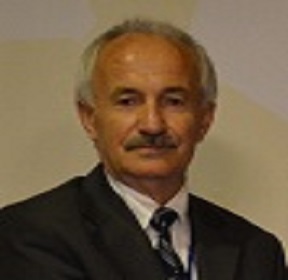
Osman Adiguzel
Dr Adiguzel graduated from Department of Physics, Ankara University, Turkey in 1974 and received PhD- degree from Dicle University, Diyarbakir-Turkey. He has studied at Surrey University, Guildford, UK, as a post-doctoral research scientist in 1986-1987, and studied on shape memory alloys. He worked as research assistant, 1975-80, at Dicle University and shifted to Firat University, Elazig, Turkey in 1980. He became professor in 1996, and he has already been working as professor. He published over 60 papers in international and national journals; He joined over 120 conferences and symposia in international and national level as participant, invited speaker or keynote speaker with contributions of oral or poster. He served the program chair or conference chair/co-chair in some of these activities. In particular, he joined in last seven years (2014 - 2020) over 70 conferences as Keynote Speaker and Conference Co-Chair organized by different companies. He supervised 5 PhD- theses and 3 M.Sc- theses. Dr. Adiguzel served his directorate of Graduate School of Natural and Applied Sciences, Firat University, in 1999-2004. He received a certificate awarded to him and his experimental group in recognition of significant contribution of 2 patterns to the Powder Diffraction File – Release 2000. The ICDD (International Centre for Diffraction Data) also appreciates cooperation of his group and interest in Powder Diffraction File.
Speaker Details
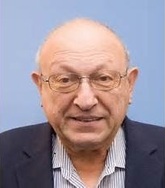
Ephraim Suhir
Ephraim Suhir has completed Ph.D from Department of Mechanics and Mathematics at Moscow State University, Moscow, Russia. He has done MS from Department of Naval Architecture, Polytechnic Institute, Odessa, Ukraine. He has total of 23 patents, 16 books, 27 book chapters, 214 papers in archival journals, 132 edited conference papers, 16 articles in trade magazines (400+ publications totally), numerous invited, keynote and webinar presentations to different audiences and at different conferences, symposia and technical meetings worldwide. He has Possesses thorough and in-depth understanding of the state-of-the-art in materials, mechanical, electrical, optical, information, telecommunication, reliability and related areas of engineering, of new and emerging technologies, and a clear vision for the most promising directions in the development of applied science and engineering. Works exceptionally well in dynamic and rapidly changing environments, under pressure and in short time frames. Performs effectively across multiple organizations, companies and departments, with specialists from various disciplines and fields, and with people of different mentalities, origins, and cultural backgrounds. He has Developed numerous predictive analytical models that are widely used by engineers and scientists worldwide in the physical design and stress analyses of electronic, photonic and MEMS materials, devices and systems,Made outstanding contributions to the permanent literature of engineering and created a new discipline Structural Analysis of Electronic and Photonic Systems (see ASME Worcester Warner Medal Award citation),Developed a new generation of moisture-resistant nano-materials, with application to optical-fiber coatings.
Speaker Details

Ivan Bozovic
Ivan Bozovic received his PhD in Solid State Physics from Belgrade University, Yugo-slavia, where he was later elected a professor and the Physics Department Head. After moving to USA in 1985 he worked at Stanford University, the Varian Research Center in Palo Alto, California, and in Oxxel, Bremen, Germany. Since 2003, he is the MBE Group Leader at Brookhaven National Laboratory, and since 2014 also an Adjunct Professor of Applied Physics at Yale University. He is a Member of European Academy of Sciences, Foreign Member of the Serbian Academy of Science and Arts, Fellow of APS, and Fellow of SPIE. He received the Bernd Matthias Prize for Superconducting Materials, SPIE Technology Award, the M. Jaric Prize, the BNL Science and Technology Prize, was Max Planck and Van der Waals Lecturer, and is a Gordon and Betty Moore Foundation PI. His research interests include basic physics of condensed states of matter, novel electronic phenomena including unconventional superconductivity, innovative methods of thin film synthesis and characterization, and nano-scale physics. He has published 11 research monographs and over 290 research papers, including 30 in Science and Nature journals.
Speaker Details

Ching-An Peng
Ching-An Peng started his academic career as an assistant professor at the University of Southern California in Chemical Engineering Department and later on promoted to associate professor with tenure. He then worked at the National Taiwan University as a full professor and at Michigan Technological University as the first holder of the James and Lorna Mack Endowed Chair in Bioengineering. In 2015, he joined the University of Idaho. Over the course of his academic career, Peng has been involved with research in drug/gene delivery using viral and nonviral vectors as well as ultrasonic device, developing phagocytosis-resistant perfluorocarbon-based oxygen carriers using PEGylated fluor surfactant and CD47 ligand, photo thermolysis of cancer cells using nanomaterials, and detection of antiviral agents using nano biosensors.
Speaker Details

Takashiro Akitsu
Takashiro AKITSU, Ph.D. is a full Professor for the Department of Chemistry, Faculty of Science Division II at Tokyo University of Science. He completed his undergraduate school training (chemistry) from Osaka University, Japan and his graduate school training (physical & inorganic chemistry, especially coordination, crystal, and bioinorganic chemistry) from Osaka University (Ph.D. 2000). After Keio University and Stanford University, He moved to the current affiliation since 2008. Dr. Akitsu has published up to about 180 articles in peer-reviewed journals and has had posters presented at international level. He has been a peer reviewer of many journals and acted as an organizing committee of several international conferences.
Speaker Details

Lukasz Andrzej Glinka
Lukasz Andrzej Glinka is an author, editor, peer reviewer, researcher, and non-fiction writer. He contributed in both science and humanities; his top books belong to British Library Catalogue. He began research in 2006 at Joint Institute for Nuclear Research in Dubna, Russia, in 2009 continued at B.M. Birla Science Centre in Hyderabad, India, while in 2010 Peoples Friendship University of Russia in Moscow, Russia awarded him by B.Sc. degree in physics. Starting 2013 he is editor-in-chief, editorial board member, and peer reviewer for multiple academic journals.
Speaker Details

Liangchi Zhang
Dr Liangchi Zhang is Scientia Professor at the University of New South Wales (UNSW Sydney), Australia; prior to which he has worked at the University of Cambridge UK, the National Mechanical Engineering Laboratory MITI Japan and the University of Sydney Australia. His research is on both the fundamentals and industrial applications in the cross- disciplinary field of precision manufacturing, nanotechnology and biomedical manufacturing. His research outcomes have been well received and have led to tremendous economic benefits for industry in tens of million dollars per annum. He was awarded a higher doctoral degree, Doctor of Engineering, at the University of Sydney in 2005 and elected Fellow of the Australian Academy of Technological Science and Engineering in 2006.
Speaker Details
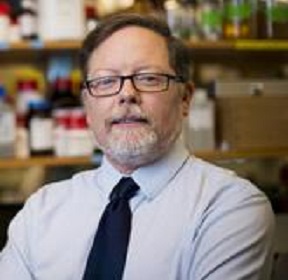
Thomas J Webster
Joined the Chemical Engineering Department in Fall 2012.
The primary focus of our research is the design, synthesis, and evaluation of nanomaterials for various medical applications. This includes self-assembled chemistries, nanoparticles, nanotubes, and nanostructured surfaces. Medical applications include inhibiting bacteria growth, inflammation, and promoting tissue growth. Tissues of particular interest are bone, cartilage, skin, nervous system, bladder, cardiovascular, and vascular. There is also an interest in anti-cancer applications where nanomaterials can be used to decrease cancer cell functions without the use of pharmaceutical agents. There is also a large interest in developing in situ sensors which can sense biological responses to medical devices and respond in real time to ensure implant success. Lastly, there is an interest in understanding the environmental and human health toxicity of nanomaterials.
Speaker Details
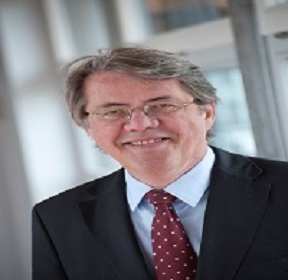
Hans-Jorg Fecht
Prof. Hans J Fecht is Chair Professor in the faculty of engineering science, computer science and psychology at Ulm University, Germany and the Director of the Institute of Functional Nanosystems. He is also the office director for Cluster Metallurgy Europe, an international non- profit organization, since 2015. Prof. Dr. Fecht has published over 500 scientific papers. He has served as the European editor for the Journal of Nanoscience and Nanotechnology, and the regional editor for the American Journal of Nanotechnology, and as the associate editor for the International Journal of Theoretical and Applied Nanotechnology. An elected fellow and member of the Max Kade Gesellschaft in New York, Dr. Fecht is also a Member of the European Academy of Sciences and Arts. In 1998, he was awarded a G.W. Leibniz Award from the German Research Foundation.
Speaker Details
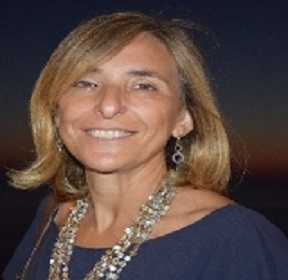
Lucia Catucci
Dr. Catucci studied Chemistry at Bari University, Italy, and graduated with summa cum laude as MS in 1991. She then obtained a CNR post-degree grant (1991-1993) at the actual Institute for Chemical Physic Processes. She received her Ph.D. degree in Chemistry in 1997 at the University of Bari, where in 1996 she got the Researcher position and in 2005 that of Associate Professor. She had international experiences at Imperial College-London, BCR of Szeged-Hungary, Universität Munich-Germany, and Albert-Ludwigs-Universitat of Freiburg-Germany. She has published more than 70 scientific publications in international journals (IF).

